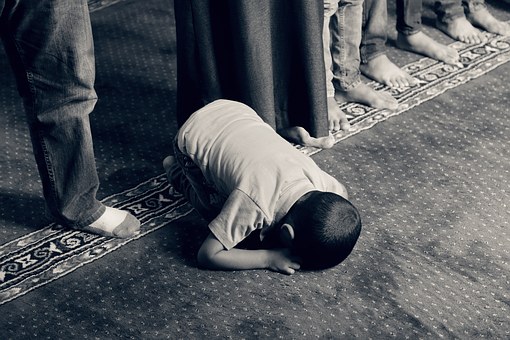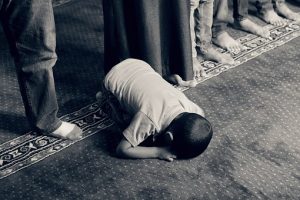How to perform sujud al sahw

The Prostration of Forgetfulness
There are two methods of performing sajda al sahw (the prostration of forgetfulness):
The Hanafi Method
When you reach the last rakat, recite at-tahiyaat till the end innaka Hameedun Majeed.
Make a single salam to the right.
Perform 2 additional prostrations (with subhana rabiyal a’la three times).
Complete your salah: Recite at-tahiyaat till the end innaka Hameedun Majeed then make dua.
End the prayer (as normal) with salam to the right and left.
The Shafi’i Method
When you reach the last rakat, recite at-tahiyaat till the end innaka Hameedun Majeed.
Do not do salam instead make 2 additional prostrations (while reciting subhana rabiyal a’la three times)
End the prayer by saying salam to the right and left.
Both Imams Hanafi and Shafi’s method are based on evidences which showed the Prophet (peace be on him) did this.
When is the sajda al sahw required?
If you miss and wajib parts of the salah you can make the sajda al sahw.
However, if you forget a pillar (arkan) of salah, you have to repeat the salah.
If you miss your salah, it is better to make up the salah later, than to perform sunnah or nawafil prayers.
Shaykh Haytham Tamim delivered during the Let’s Fix your Salah course
Related posts
What are the pillars of salah?
Jazakumullahu khayran for spending time learning with us. We need your support to enable us to reach more people and spread authentic knowledge. Every contribution big or small is valuable to our future.
‘If anyone calls others to follow right guidance, his reward will be equivalent to those who follow him (in righteousness) without their reward being diminished in any respect.’ (Muslim)
Help us promote a better understanding of Islam’s beautiful message of balance, moderation and tolerance.
Your support will help us make sacred knowledge accessible and empower people to improve themselves and their lives.
Recommended Posts

What are the pillars of salah?
June 13, 2021

Lessons in victory from Surat Al Ahzab
May 12, 2021


